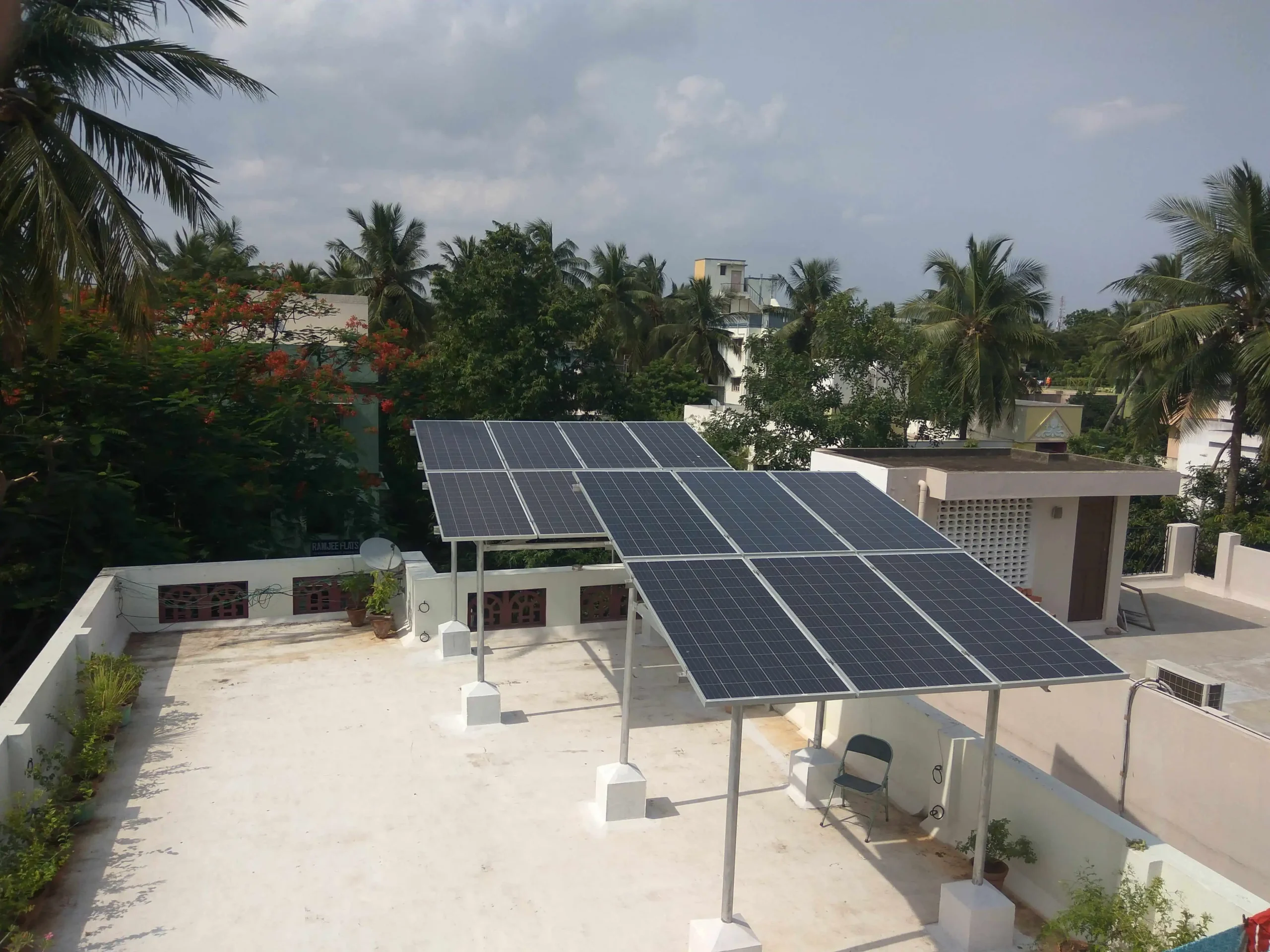Powering homes and businesses with solar energy has got popularity as an environmentally beneficial alternative. A major concern amongst prospective solar panel users is how effective the solar panels are in less- than ideal weather, especially on rainy days. In spite of that, one of the most often queries we get is, “Do solar panels work on rainy days? We at IQ Energies are here to explain this and provide you a deeper insight on how solar panels function in challenging weather conditions.
Process of solar power generation
It’s critical to comprehend the fundamentals of solar power generation in order to comprehend how weather affects solar panel performance and longevity. Solar panels commonly known as photovoltaic (PV) panels use sunlight to generate electricity. They consist of many solar cells, most of which are silicon- based. While sunlight hits these cells, it knocks electrons to break free from their atoms which results in the creation of an electric current.
Solar panels and Rainy days
Solar panels usually work ideally under direct sunlight. In spite of that, it will generate energy sources even on rainy days. Here are the reasons:
1. Reduced Efficiency but not zero Output
Solar panels continue to produce electricity at a decreasing rate. Depending upon the overcast conditions, IQ Energies powered solar panels can generate between 10%- 25% of their normal output. Rainfall can even be beneficial as it helps to remove dirt and debris that could obstruct sunshine on clear days.
2. Diffuse light utilisation
The clouds on overcast and wet days scatter the sunlight. Even though dispersed light isn’t as strong as direct sunshine, solar panels may still harvest it and use it to generate energy. Introduction of solar technology has increased the effectiveness of solar panels to exploit diffuse light, which means they can continue to produce electricity even when the sun isn’t shining.
3. Energy storage solutions
In the solar energy system, the presence of battery storage used to work as a conjunction. These are the batteries usually designed for keeping extra energy on sunny days that provides solar energy at low light or overcast conditions. If the battery in your solar system is equipped, it will be able to provide power even when the panel’s aren’t producing much. That is why, we at IQ Energies make a robust setup that helps to ensure a continuous energy supply, reducing reliance only on the solar grid.
4. Grid Connection
In residential purposes related to solar installation, the power grid is locally connected to each cell. This system helps in rainy days or overcast conditions where solar panels can use it to pull power from the local grid and distribute it appropriately. Apart from that, the grid in the existing solar system is able to generate extra energy and often receives credibility from utility providers.
Influential factors affecting solar panel efficiency on Rainy days
Panel quality
Superior solar panels are engineered to optimise energy generation in subpar circumstances. Compared to ordinary panels, We at IQ Energies offered premium solar panels that frequently have greater efficiency ratings and operate better in low light.
System design
Design of a premium Solar energy system is important to generate electricity in overcast conditions. Panels that are placed and slanted correctly can collect more diffuse light, which boost performances in overcast conditions. Furthermore, individual panel’s output can be increased by using micro- inverters that can maximise system efficiency as a whole.
Local climate
The overall efficiency of solar panels is affected by the climate in your area. The average solar output in regions with regular rain and cloud cover is inherently lower than that of brighter regions. However, we at IQ Energies are highly committed towards advancement in solar technology and energy storage solutions that make solar power feasible even in rainy days.
Benefits of Rain for solar panels
Natural cleaning
Rain hits solar panels and interestingly helps in cleaning solar panels, washing away dust, foul and debris that accumulated over time. This natural cleaning process is able to improve the panel’s efficiency by ratifying more sunlight that reaches the cells when the weather clears up.
Temperature regulation
Solar panels used to operate efficiently in cooler temperatures. Interestingly raindrops can help cool the panels, potentially improving their performance on subsequent sunny days.
Conclusion
In conclusion, rainy days can still be used for solar panel installation, albeit at a lower efficiency than on bright sunshine days. Energy storage and grid connectivity, together with other deliberate system design elements, along with technological advancements guarantee that your solar energy system will continue to function dependably and efficiently even in inclement weather. Rain or shine, our goal at IQ Energies is to assist you in harnessing the power of the sun. Get in touch with us right now to find out more about how solar energy may benefit you in any climate.

